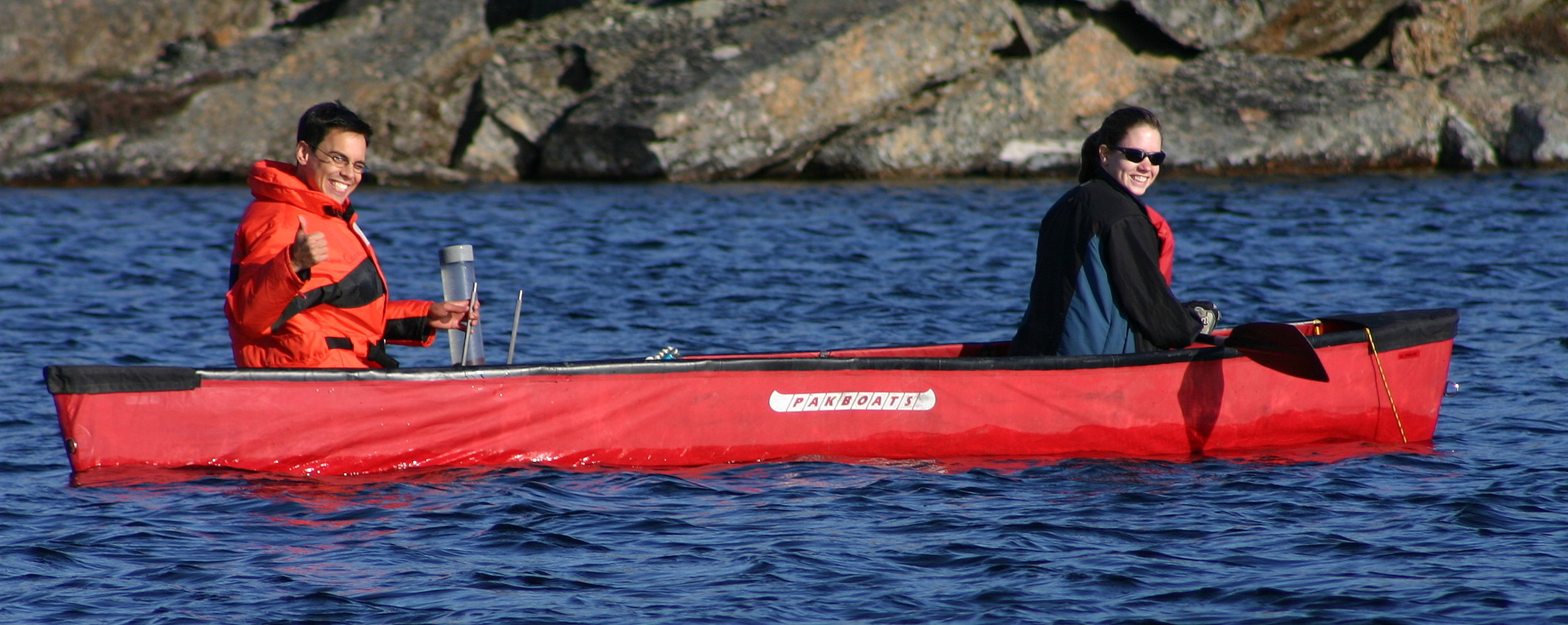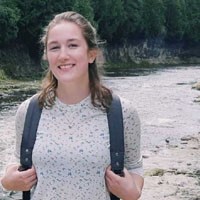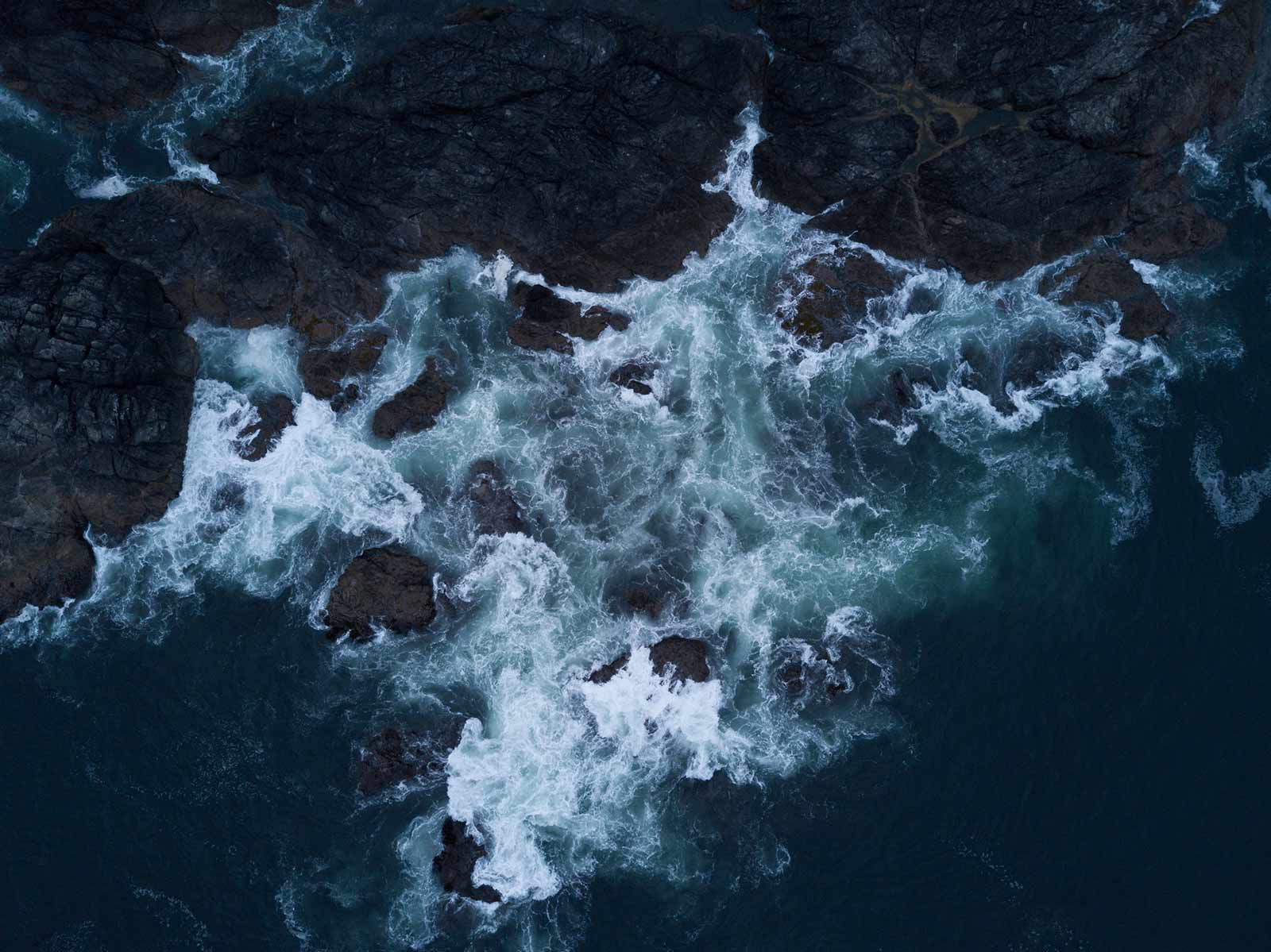
Here is the challenge for monitoring and resource management and conservation planning for the freshwater habitats: a lack of baseline knowledge of how the freshwater ecosystems operate through time. Without a context, there is little to compare monitoring information to.
In collaboration with Parks Canada, Andrew Madeiros and his team assessed biological and environmental information for the freshwater systems of Sable Island National Park Reserve (NPR), to develop a monitoring program for Sable Island with a context that can range from centuries to millennia through the inclusion of paleolimnological information. Paleolimnology is the study of indicators preserved in lake sediments which allows lakes to serve as storybooks of the past, and the information contained can be used to calibrate projections for the future.
The research team directly addressed previous unknowns through the development of methodologies and monitoring approaches that will directly aid in conservation planning and development. They created a biomonitoring measure for the freshwater ecosystems of Sable Island and created a model to project the sustainability of these ecosystems in the face of future environmental change.
Project lead Andrew Medeiros recruited Dalhousie University students to assist with developing the monitoring program for the coastal freshwater ecosystems of Sable Island National Park Reserve. Crowdfunded donations supported fieldwork and laboratory expenses for the collection and processing of samples and equipment and consumables used for this research.
About Sable Island National Park Reserve
Sable Island National Park Reserve is an example of a coastal ecosystem that is highly influenced by environmental change and subsequent variability in weather extremes. Storm-surge activity and erosion have led to a large-scale change in the surface hydrology of Sable Island, including the impacts the freshwater sources that sustain populations of horses, birds, and many species of rare plants and invertebrates. Ultimately, the sustainability of freshwater systems of Sable Island is not known, highlighting the need to not only understand the trajectory of these systems through time but monitor their ecological integrity.
Parks Canada has the mandate to not only protect the ecological integrity of ecosystems under their jurisdiction but also to monitor these systems. This project assists with this process by developing a clear approach and methodology for monitoring of the freshwater ecosystems of Sable Island as well as providing the context in which they can be assessed. The use of benthic macroinvertebrates as biological indicators for assessing the health of freshwater habitats is a common biomonitoring approach used across Canada. Knowledge gained from monitoring benthic macroinvertebrate indicators can also be applied to detecting the influence of environmental stress at fine scales.

Parks Canada’s Contribution
Parks Canada supported this project by providing the logistical necessities to conduct the proper research. Travel accommodations for students and researchers on Sable Island NPR were provided by Parks Canada, as well as ongoing research support to integrate this project into their Ecological Integrity Monitoring Program.
Project Team
Dr. Andrew Medeiros is an expert in freshwater ecology, biogeochemical processes, and Arctic environments. His research focuses on understanding the ecological trajectory of freshwater ecosystems of the past, present, and future. By examining change from centuries to millennia, he is able to make predictions and create models to project responses to environmental change. Dr. Medeiros is motivated by seeing science in action and has worked hard to build relationships and establish trust with Indigenous communities whom are at the forefront of environmental change in the North. This has allowed him to combine quantitative modeling to examine issues of fresh water quantity and quality as it applies to northern communities. The data allows researchers to conduct risk analysis for municipal water supplies, and research areas of concern for local residents. His findings have resulted in a fundamental shift in the way this knowledge is applied to water security challenges.



Shen Molloy
2019-2021 M.R.E.M. Candidate
“I’m interested in the impacts of climate change on coastal communities and what natural adaptations can be implemented to mitigate these challenges.” – Shen Molloy
Shen is from Kingston, Ontario. She is currently finishing her BSc. in biology and environmental science at Mount Allison University. In the fall, she will starting a new chapter at Dalhousie studying freshwater sustainability on Sable Island using paleolimnological indicators. With a passion for the environment, Shen is excited for the opportunity to learn about how to quantify future sustainability using indicators of the past. By examining the subfossil remains of insect populations in sediment cores from the ponds on Sable Island, Shen will be exploring a metaphorical storybook of information that will calibrate ongoing monitoring and future conservation planning.

Victoria Watson
2019-2021 M.E.S. Candidate
“I have always been interested in how climate change transforms environments and what this means for the future.” – Victoria Watson
Victoria is from Guelph, Ontario. She completed her B.Sc. Hon. in Environmental Science at Guelph University, focusing on organic matter impacts on the bioavailability of pesticides in water, and analyzing fisheries management and licensing on Canada’s West Coast. Starting in September 2019, Victoria will be studying the vulnerability of Sable Island’s freshwater ecosystems. Victoria’s interest in Ecology developed at a young age, with a strong interest in wildlife protection. The opportunity to research Sable Island’s ecosystems is a once in a lifetime opportunity to not only build skills in quantitative ecology, but also to have meaning behind her work for both the ongoing monitoring of Sable Island’s freshwater ecosystems but also all of the endemic species that rely on them.



